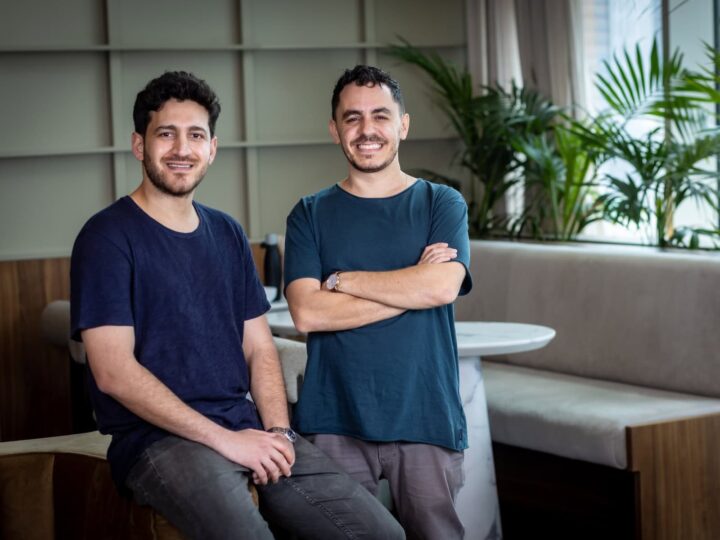The ongoing war with the Hamas terrorist organization in Gaza has strongly impacted the Israeli tech community and galvanized it into action.
Following the horrific October 7 massacres, many tech employees have been called into the IDF reserves to fight.
The ecosystem was already reeling from foreign investors passing on local startups due to the uncertainty caused by the judicial overhaul debate. This war has only added to the challenge.
While it is still too early to know exactly how, it is certain that the war will have short- and long-term ramifications on Israeli society, and the tech ecosystem in particular, as every Israeli has been impacted by this calamity.
But as is often the case in business and entrepreneurship, the grittiest soldiers are given the biggest missions and toughest challenges to overcome.
Israeli companies are still working hard and engaging with customers despite the difficult situation in the country. Whether at home or at global conferences, it’s not business as usual but there is a palpable sense of urgency to produce results.
In conversations with leaders from Israeli companies attending the Money 20/20 conference in Las Vegas, as well as some in Israel, we hear professionals stating their belief that ultimately Startup Nation will come out stronger.
Rational optimism is the one trait that has been uniform, along with a high sense of morale… not only in order to serve, but to service customers.
If there is any sense of a silver lining, it is that the tech community will overcome one of the country’s most challenging periods since the founding of the state, and produce something amazing after the war ends.
Continuing to serve clients
One of the biggest challenges faced by tech companies during the war is the huge reservist callup. The 120 percent rate of reserve soldiers showing up for duty includes those who came back from abroad voluntarily.
This has impacted many companies’ ability to function at a high level, but there have been initiatives to help, with volunteers stepping in to manage daily business operations.
“For every fallen soldier, for every murdered civilian, let’s put together a new innovative startup.”
Israeli entrepreneurs and investors have also taken to LinkedIn, Twitter and other social-media platforms to help fight all the misinformation out there. This is a time-consuming task. And it has also been hard to juggle work responsibilities with staying up to date on current events.
Overall, however, companies are focusing on delivering results to clients. For example, fintech company Payoneer offered this statement at Money 20/20:
“Payoneer continues to serve our customers and our Operations & Customer Care organizations are distributed around the world to serve our customers continuously without interruption due to the current conflict in Israel. We are continuing to monitor the situation closely and are deeply saddened by what’s happening. Our top priorities are supporting our Israeli employees through this difficult time and ensuring our business continues uninterrupted, and our customers continue to do business globally.”

Zur Yahalom, senior VP and head of financial services for the Americas at Amdocs, expressed a similar sentiment at the conference.
He said that while some Israeli employees have been impacted personally, and are being actively “embraced and supported” by Amdocs, “we’re doing everything that we can to make sure that the work, and our commitments to our customers, are not impacted.”
Yahalom emphasized, “Amdocs is a global company and the majority of our employees are not in Israel. We have the ability to continue to operate and so we try to either minimize, or to get to the point where there is no impact on the operations of the company as a whole in the way that we support our customers, and we continue to run the business.”
Tech leaders stepping up

Viktoria Kanar, CEO and cofounder of Re-Fresh Global — a company aiming to reduce the fashion industry’s carbon footprint by turning textile waste into new materials and products — shared her thoughts on managing a decentralized team during this period.
Re-Fresh Global has about half its team in Israel and half in Germany. At the first staff meeting after the war started, the Israeli employees told their German colleagues that they might have to run to the shelter if there was a siren (which did ultimately happen).
Kanar says it was a challenge to explain this to people who have never experienced a situation where a rocket could fall on them.
“It is the discrepancy between how Israel is seen — the innovators, the strong, super modern, developed techie and edgy people — and here we are, humans who have to run and hide and seek shelter… it’s very hard to make the connection between both,” she said.

Ariel Blum, an Israeli-American entrepreneur based in Tel Aviv, has been playing an instrumental role in advancing the democratization of digital payments globally. At the beginning of this year, he founded Receive, a fintech startup providing on-demand access to liquidity for small businesses.
How is he managing his team during this current situation?
“We have members of our team and members of our staff who are on the frontlines. So, the first thing is praying and thinking about them consistently, and checking in on them on WhatsApp, doing whatever we can do to just let them know that we’re thinking of them.”
Blum admits that “the first week was pure trauma, we were just frozen and very unable to work right. And I think what we kind of understood quickly was we needed to be able to get back into some routine. It’s not going to be the same routine that we know, but it’s going to be a routine. It’s never going to be the normal that we knew, but it’s going to be a new norm, right? And I give a tremendous amount of credit to my team. Everybody picked up the slack.”
Current state of the Startup Nation

Along with entrepreneurs, professionals working for the Israeli government have stepped up their work, and share a glimpse of the Startup Nation at war.
Eli Levin is in charge of innovation and economic affairs at the Consulate General of Israel to New England. He promotes international collaborations between Israeli tech companies and the New England ecosystem.
“The major impact of the war on the tech scene in Israel is the fact that about 360,000 Israelis have been called up to serve with their reserve units,” Levin says.
“Between 10-20% are tech employees, which forced many startups to make adjustments and cope with logistical and operational difficulties. Luckily, the Covid pandemic period has taught those companies to change their business activity like working remotely, and that is now being implemented as well.”
Weighing in from a VC’s perspective, Kfir Kachlon, the founder and managing partner at 91 Ventures, believes that since October 7, one cannot claim that it’s business as usual. But things grew from that experience, he says.
“You have amazing social projects, people donating time, money and resources, and a lot of people collaborating together. You have techies building technologies and even platforms to connect needs with supply. You have VCs who beautifully built up organizations that are meeting demands by getting supplies and donations. So, everybody has pitched in to support the effort.
“They say that diamonds are formed under pressure, and we will soon see that Israel is really the Diamond Nation.”
“Israelis don’t remain silent and they’re not waiting for anybody to give them anything… they’re going out and creating.”
Kanar, however, offers a perspective that runs counter to what many have been saying publicly.
“What I think that you’ve been hearing from the VCs, or the men mostly, is that Israelis are always strong. No, Israel is not strong right now. Israel is hurting and bleeding and very vulnerable. And it’s okay to show that human face… it’s very important for us. People will not be able to relate to us emotionally if we’re not going to show it,” she says.
Nevertheless, tech leaders are optimistic for the future of the industry. Even when they are personally hurting.
Entrepreneur and investor Izhar Shay said, after his soldier son was killed during the war,
“For every fallen soldier, for every murdered civilian, let’s put together a new innovative startup.”
The Diamond Nation?
This idea is going to drive the post-war recovery of the Startup Nation.
Eli Levin predicts that “the future after the war will bring new business opportunities for the Israeli startup scene. At the same time, this will strengthen the already existing collaborations with international investors who have put great trust in the innovation and resilience of the Israeli market.”
Kfir Kachlon, as an investor, reflects on what the “day after” could bring:
“First of all, we will have to earn our ranks again. Israel has been hit with a big blow both in terms of the people we lost and the hostages, but also to what we were as a model to other people in technology,” he says.
“Our technological ecosystem of cybersecurity capabilities has been our strength. So many people from abroad believed that we were invincible, and that we were so strong. And then reality knocked on the door and we were surprised… we will have a lot of scrutiny about it. Israeli tech will have to reassure its place in the world. We will have to go through a healing and rebuilding process.
“However, I do believe that out of the hundreds of projects that the tech ecosystem has forged since the massacre, new innovation will be found. You already see people who get together and create stuff out of nothing,” Kachlon says.
“I think that from this conflict, we will have new technologies, new ideas, new ways to do stuff, an even more collaborative ecosystem than before, new synergies all around, probably on the cybersecurity level as well. I think the country and the ecosystem will probably benefit from a lot of knowledge that is now being created.
“But we will have to work hard to prove ourselves. We will have to rebuild this brand of Israeli technology. I’m sure the best is yet to come; it’s time to double down on Israel.”
Jeremy Balkin, who works closely with the Israeli tech community and founded the fintech startup TodayPay, stated at the Money 20/20 conference: “They say that diamonds are formed under pressure, and we will soon see that Israel is really the Diamond Nation.”
In conclusion
In recapping the main insights into the resilience of the Israeli tech sector and its potential for growth post-conflict, Ariel Blum wraps it up like this:
“People here generally rank high on that scale of positive optimism; they believe that they’re going to overcome. If you saw the amount of people helping, volunteering, running around, you’d be just seriously mind-blown.
“We want 1,400 new startups, one for every victim. To me, that’s the beauty in the Israeli thinking and values — each person is a world and we need to rebuild those worlds — which I love. I think there’s a lot of resilience. I couldn’t be prouder to have launched Receive in Israel and be a part of this incredible community.”
Jonathan “Yoni” Frenkel is a LinkedIn ghostwriter, content marketing strategist, creator and founder of YKC Media.
















